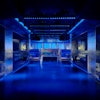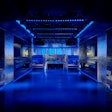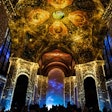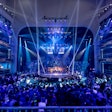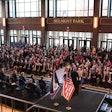From a PR standpoint, a lawsuit days before a scheduled event equals plenty of free publicity. But a court date can spell considerable trouble to event plans. Eight days before clothing designer Marc Ecko's block party to launch his new video game, Getting Up: Contents Under Pressure, the city revoked the event's street permit. The launch was to take over a Chelsea block and fill it with subway car facades to be spray-painted by graffiti artists, and city officials felt the event would encourage vandalism.
"We weren't really looking forward to dealing with this at the last minute," says Clint Cantwell, director of corporate communications for Marc Ecko Enterprises, which had been planning the party since November 2004. The Ecko group reacted quickly. "The minute we found out the permit was revoked, we sat down to come up with other plans," says Miryam Reinitz, marketing manager for Marc Ecko Enterprises and one of the leaders of the planning team. "We came up with a web of strategies [to ensure the event's survival] whether it was happening or not happening on the city block."
But a change of venue, Cantwell says, would have altered their plans dramatically. "We would have had to chose a different date, no question," he said.
As the company's legal team announced its intentions to sue New York City Mayor Michael Bloomberg and the City of New York for violating the company's First Amendment rights, the creative team frantically phoned all of the vendors to keep them abreast of developments. "It was a matter of calling every single person involved, about 20 different companies, and asking them to work with us and making sure it would happen," says Reinitz. This included calls to Metal Man Ed, the artist who designed and fabricated the subway replicas and was driving them cross-country from Belmont, California. They also called graffiti artist Ket, who had enlisted all the other graffiti artists at the event and relayed information to them about the court proceedings.
As soon as U.S. District Judge Jed S. Rakoff ruled in Ecko's favor at an August 22 hearing, Reinitz was on the phone to let everyone know the show was on. By noon two days later, many had their sketches taped to the 48- by 8-foot subway car canvasses and were spritzing out spirals, figures, and stylized lettering. A mixed crowd strolled behind NYPD barriers, set up to give artists room to move, and gaped at the works in progress.
Some of the 3,000 attendees paused to play video games at GameStop's portable Road Warrior video game shed, or basketball at the court thetruth.com set up next to its van. East Village toy store Toy Tokyo displayed its wares and small plastic trains decorated by various artists. DJs including RJD2, DJ Prince Paul, DJ Spinbad, and DJ IXL spun hip-hop throughout the event.
Security was everywhere. Noble Inc. Security supplemented security from uniformed and undercover NYPD officers. (Ecko hired Noble to protect the artists and control the crowd. The company also agreed to add extra security personnel when they reapplied for the permit, to ensure onlookers wouldn't do any painting of their own.) For an event that had the feel of a casual street fair and peacefully closed down by dusk, the show of force hardly seemed necessary.
Instead, the biggest challenge at the event, Reinitz said, was working with the strict city regulations regarding emergency lanes and sidewalk space requirements.
Despite the pre-event headaches, the party went on without incident. "I think we proved that you can hold a successful event celebrating graffiti art, and squashed a lot of fears in City Hall that graffiti is a crime," Cantwell said. The lawsuit also won the company lots of free publicity: The New York Times, Newsday, The New York Post, NPR, and several New York-based blogs all reported on the suit and ensuing event.
Reinitz added: "Not one bit of ink got on the street."
—Jenny Sherman
Related Events
Trend Spotted: Graffiti
Paris' Fragrance Launch Is All Pink
Fashion Mag Uses Boxing Ring for Street Cred
"We weren't really looking forward to dealing with this at the last minute," says Clint Cantwell, director of corporate communications for Marc Ecko Enterprises, which had been planning the party since November 2004. The Ecko group reacted quickly. "The minute we found out the permit was revoked, we sat down to come up with other plans," says Miryam Reinitz, marketing manager for Marc Ecko Enterprises and one of the leaders of the planning team. "We came up with a web of strategies [to ensure the event's survival] whether it was happening or not happening on the city block."
But a change of venue, Cantwell says, would have altered their plans dramatically. "We would have had to chose a different date, no question," he said.
As the company's legal team announced its intentions to sue New York City Mayor Michael Bloomberg and the City of New York for violating the company's First Amendment rights, the creative team frantically phoned all of the vendors to keep them abreast of developments. "It was a matter of calling every single person involved, about 20 different companies, and asking them to work with us and making sure it would happen," says Reinitz. This included calls to Metal Man Ed, the artist who designed and fabricated the subway replicas and was driving them cross-country from Belmont, California. They also called graffiti artist Ket, who had enlisted all the other graffiti artists at the event and relayed information to them about the court proceedings.
As soon as U.S. District Judge Jed S. Rakoff ruled in Ecko's favor at an August 22 hearing, Reinitz was on the phone to let everyone know the show was on. By noon two days later, many had their sketches taped to the 48- by 8-foot subway car canvasses and were spritzing out spirals, figures, and stylized lettering. A mixed crowd strolled behind NYPD barriers, set up to give artists room to move, and gaped at the works in progress.
Some of the 3,000 attendees paused to play video games at GameStop's portable Road Warrior video game shed, or basketball at the court thetruth.com set up next to its van. East Village toy store Toy Tokyo displayed its wares and small plastic trains decorated by various artists. DJs including RJD2, DJ Prince Paul, DJ Spinbad, and DJ IXL spun hip-hop throughout the event.
Security was everywhere. Noble Inc. Security supplemented security from uniformed and undercover NYPD officers. (Ecko hired Noble to protect the artists and control the crowd. The company also agreed to add extra security personnel when they reapplied for the permit, to ensure onlookers wouldn't do any painting of their own.) For an event that had the feel of a casual street fair and peacefully closed down by dusk, the show of force hardly seemed necessary.
Instead, the biggest challenge at the event, Reinitz said, was working with the strict city regulations regarding emergency lanes and sidewalk space requirements.
Despite the pre-event headaches, the party went on without incident. "I think we proved that you can hold a successful event celebrating graffiti art, and squashed a lot of fears in City Hall that graffiti is a crime," Cantwell said. The lawsuit also won the company lots of free publicity: The New York Times, Newsday, The New York Post, NPR, and several New York-based blogs all reported on the suit and ensuing event.
Reinitz added: "Not one bit of ink got on the street."
—Jenny Sherman
Related Events
Trend Spotted: Graffiti
Paris' Fragrance Launch Is All Pink
Fashion Mag Uses Boxing Ring for Street Cred
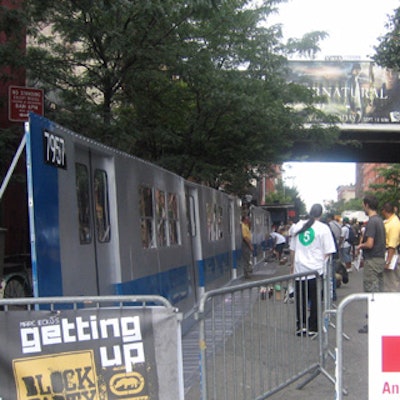
Metal Man Ed fabricated subway car mockups for graffiti artists to spray-paint for the launch of Marc Ecko's video game Getting Up: Contents Under Pressure.
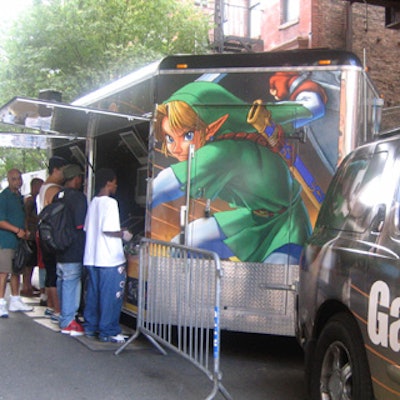
People stopped to play video games at GameStop's portable Road Warrior video game shed.
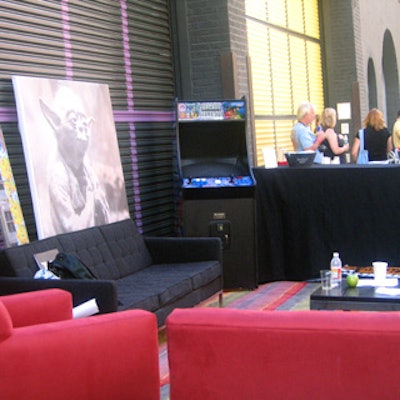
Graffiti artists could relax in a small lounge equipped with an old-school arcade game.
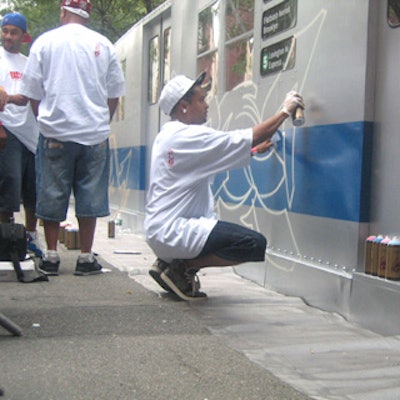
Graffiti artists spray-painted mock subway cars.

